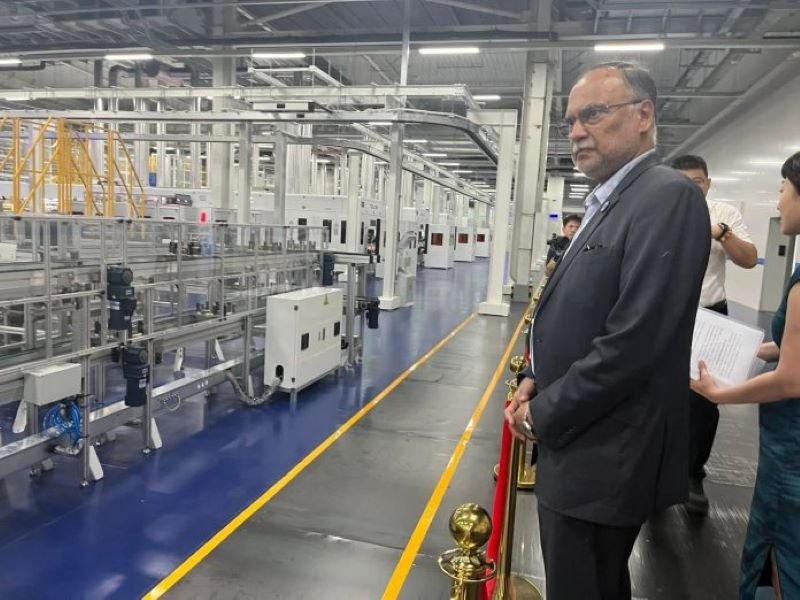Tianjin (TDI): Federal Minister for Planning, Development and Special Initiatives, Professor Ahsan Iqbal, visited Tianjin on the margins of the Shanghai Cooperation Organization (SCO) Summit to explore new avenues of cooperation under the second phase of the China-Pakistan Economic Corridor (CPEC).
Tianjin, one of northern China’s leading industrial and financial centers and home to the region’s largest port, provided the backdrop for discussions on expanding collaboration between Pakistan and China.
Speaking during the visit, the minister underscored the opportunities for Pakistan to benefit from CPEC Phase II in sectors such as ports, renewable energy, and livestock. “CPEC 2.0 opens immense possibilities to strengthen Pakistan’s infrastructure, agriculture, and energy security,” he noted.
Ahsan Iqbal toured the Huan Sheng New Energy Solar Plant, describing it as a model of Fourth Industrial Revolution technologies. He commended China’s progress in solar innovation and said Pakistan was eager to replicate similar projects.
Read More: CPEC Phase-II Set for Formal Launch with PM Shehbaz’s China Visit
“The future is in green energy. We invite Chinese investors to partner with us in developing Pakistan’s clean energy sector,” he said, adding that such ventures would support the country’s sustainability agenda.
The minister also visited a Chinese company specializing in animal vaccine development, where he discussed the potential of setting up a production facility in Pakistan. Highlighting the importance of livestock to Pakistan’s economy, he said disease control and meat export growth remain national priorities.
Read More: Game-Changer: Pakistan, China Extend CPEC to Afghanistan
He further outlined Pakistan’s plans to establish modern research centers, developed with Chinese expertise, to promote technology transfer, innovation, and agricultural biotechnology. These, he said, would help raise crop yields, strengthen food security, and uplift rural communities.
Reiterating Islamabad’s resolve to maximize the benefits of CPEC’s second phase, the minister stressed that the initiative is now moving beyond infrastructure toward industrialization, innovation, and sustainability. “CPEC 2.0 builds on the foundation of the first phase and will drive Pakistan toward a diversified, technology-driven, and climate-resilient future,” he affirmed.



